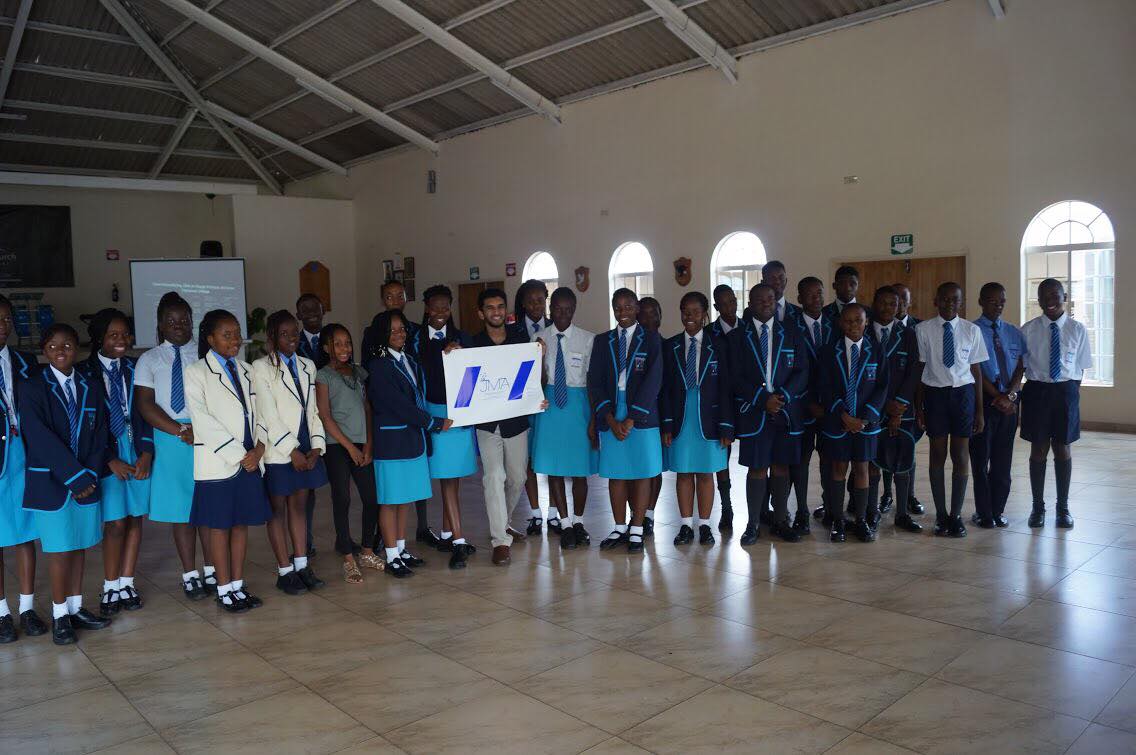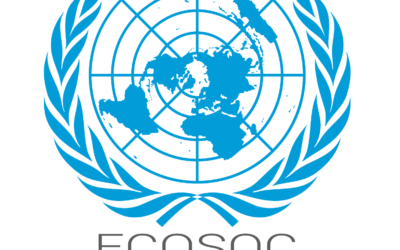HARARE, ZIMBABWE—On Sunday January 1, 2018, Junior Medical Academy (JMA) Cofounder Reetam Ganguli arrived at Harare, Zimbabwe to meet with Knowledge Chikundi, founder of the Zimbabwe Science fair, and CEO of Noor Academy. The two met with the aim of spreading access to Medical Biology Curricula across Zimbabwe, starting with three different schools in Harare for the duration of the visit.
Meeting with the headmaster and staff of Irene Christian College and Happy Primary School in Harare on the first day of the trip, JMA was able to gain insight on the native education system in Harare, understand challenges teachers face in the classroom, and give participating teachers a training session on how to best implement the JMA Medical Biology Curriculum.
In an interview with Beverly Masila, an English and Art teacher at the Irene Christian college, Masila noted that the JMA Medical Biology Curriculum could also be paired with humanities classes to change the mindsets of students. “JMA is going to work very for me, particularly for art because I teach art and when you did talk about the lipids, I didn’t know that some of those wax […] actually have lipids in them. [So I] would integrate and fuse them into my art lessons. I think for those students who’ve always thought art is not an academic subject, they’ll start looking at it in a different light,” Masila states.
Other teachers commented on the characteristics of JMA’s teaching methods. “I found it very interesting, especially how you guys presented it […] and also the whole aspect of bring it up on slides and making it fun to learn because learning can be considered to be boring, but then you guys made things really simple. […] I found that science is not as complicated as it seemed […] when I was learning, so I think it was really good,” recounts Ms. Ninya. “JMA curriculum actually [presented] many things like […] you can take [concepts] from being abstract to something very simple and teach it to very small kids,” adds a fellow Biology teacher.
In subsequent days, Ganguli visited students from Irene Christian College, Happy Academy, and Queen Elizabeth Secondary School (an all-girls’ school) to deliver a “Medical Innovations” lesson, covering Cancer and Oncolytic Virotherapy, CRISPR genetic editing, Aquaponics and Nitrogen Cycles, BioMedical Sensors for disease detection, and Nanotechnology.
Ganguli adapted his lessons to his meetings with the teachers and staff of Irene Christian College and Happy Primary, integrating native cultural foods and references into his lessons. For example, to connect with the students when teaching how individual cancer cells accumulate into a tumor and metastasize, Ganguli used the analogy of preparing sadza (a local Zimbabwean staple meal) from individual grains on maize.
Additionally, Ganguli encouraged the motivated students in the Irene Christian College and the Queen Elizabeth All-Girls’ Secondary School to teach and spread the JMA curricula to less privileged areas in Zimbabwe that lack internet access and do not speak English. These aspiring teachers were able to use JMA’s handbook containing specific details on what to say, analogies to make, and diagrams to draw for each JMA powerpoint lesson and have already started teaching at several rural villages, underfunded schools, and shelters in the past month.
Smoli, a student at Queen Elizabeth asserts in the interview to the right, “It’s actually a pleasure to know that teenagers of my age [are] actually […] going around and […] teaching other people about biological sciences. [Reetam] inspired me to know that with the resources we have we can do much great. Basically, I […] promise that I am going to use all the knowledge that he taught me today to improve our school science club.”
Reflection From Reetam Ganguli:
Throughout my time at Harare, I have been profoundly moved and inspired by the many students I’ve had the honor to meet and teach. I’ve met students who walk several miles each day to receive an education. I’ve learned of children who, as the only ones from their villages to receive an education, travel for hours each day to school, and then reteach everything they’ve learned to other children in their villages. I’ve met women from all girl schools who aspire to be astrophysicists and oncologists despite being told as a child they should get married at 16 and tend to the house and aim to be nothing but a housewife.
Education is something I’ve had the privilege and fortune to take for granted—the students here fight for it each and every single day. The learners in Zimbabwe, in my humble opinion, have just as much, if not more, intellectual curiosity and ambition to learn than the students I teach at local Bay Area schools. I truly believe it is nothing more than a lack of access to proper resources and educational materials which are hindering their success. I’ve been amazed at how the students here, some of them who haven’t ever learned about DNA, grasped complex Medical Concepts pertaining to CRISPR, Cancer therapies, Antibodies, and more. There is no doubt in my mind—if these students had similar resources that people like me are fortunate enough to have in the Bay Area from early childhood, they would go farther than me. It was not just my pleasure, but my immense honor to be able to learn from the driven youth of Harare.
Additional Interviews:
Editor’s Note: Due to unclear audio, the names in this article may be spelled or written incorrectly. We apologize for any inconveniences.





0 Comments